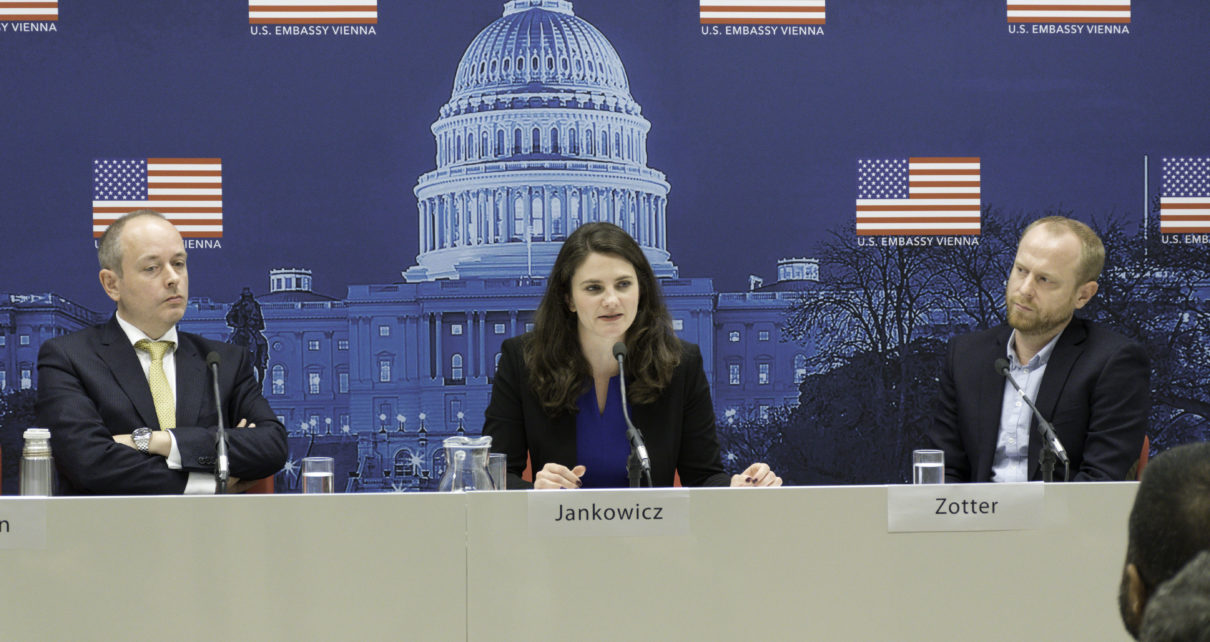Few government programs have effectively collapsed as quickly as the US’ Disinformation Governance Board (DGB), which lasted only three weeks before being suspended by the Biden administration on May 18. Initially designed as a small working group to coordinate policy between departmental agencies and headed by notable disinformation scholar Nina Jankowicz, the DGB was castigated by congressional Republicans, along with a host of Democrats and political commentators. This criticism, which largely focused on the scope of the DGB’s mandate and Jankowicz herself, along with Department of Homeland Security (DHS) Secretary Alejandro Mayorkas’s shortcomings during a Senate hearing, eventually led to its decline. However, beyond these intervening factors, the DGB’s failure also highlights the complexity of balancing security and liberty within democracies, particularly those as partisan as the US.
The DGB under DHS was originally intended to be a concentrated working group focused on coordinating the agency’s response to disinformation. While DHS has continuously countered this threat through its work in debunking the intentionally false claims propagated by human traffickers, correcting misinformation during natural disasters such as Hurricane Sandy in 2012, and protecting critical infrastructure, its efforts have often been hampered by a lack of effective cooperation mechanisms between its divisions. These divisions’ different sets of regulations often restrict their ability to conduct undercover investigations online, thus complicating necessary intelligence-sharing processes and undermining the department’s overall efficiency. In addition to coordinating these policies, the DGB was also primarily designed to provide trustworthy sources of information to the American public about domestic security.
These dual functions were intended to provide a foundation for American efforts to counter adversaries’ activities in the information space, along with channelling pre-existing initiatives such as public outreach, preparatory, discussion-based table-top exercises between private and public enterprises, criminal investigations, and counter-messaging campaigns. Nevertheless, support for the DGB significantly eroded after DHS’s initial testimony to Congress, leading to its decline.
Due to bipartisan criticism over the DGB’s scope and leadership, the Biden administration eventually suspended its operations, which have yet to be renewed. Shortly after the working group’s existence was publicly announced, DHS Secretary Alejandro Mayorkas struggled to answer congressional inquiries on the scope of its responsibility and its cost during a public hearing, severely degrading its support on Capitol Hill. Congressional Republicans and other conservative commentators expressed significant concern over the DGB’s responsibilities, including fears that DHS’ efforts would erode civil liberties by allowing the federal government to censor online speech without recourse, effectively creating a “Ministry of Truth,” as depicted in George Orwell’s dystopian novel 1984.
Further, widespread criticism was also directed towards Nina Jankowicz, the DGB’s appointed head and a disinformation researcher who had previously advised the Ukrainian government and written about Russia’s disinformation tactics and gender-based online harassment. This disapproval largely stemmed from Jankowicz’s previous comments, including a Tweet sent early during the pandemic that requested that social media companies such as Facebook not run advertisements for masks. However, the DGB’s suspension also reflects a series of interconnected issues embedded within the security politics of democracies by highlighting the long-running debate between safeguarding individual liberties and enacting regulation.
The pause of the DGB pending a 75-day review from DHS, highlights the US’ persistent challenges in countering disinformation due to the unsettled balance between the values of freedom and security within its politics. While certain critics of the DGB have launched ad hominem attacks against Jankowicz, others’ inquiries regarding the DGB’s scope and purpose have raised legitimate concerns, particularly around the extent of the First Amendment’s protection of free speech. This concern over the intersection between protecting constitutional rights and securing citizens from foreign threats remains an ongoing debate within the US, highlighted by the existence of DHS itself, which was created after the events of September 11 and the passage of the USA PATRIOT ACT.
Further, these debates have often been imbued with partisanship as conservatives allege that social media companies have unfairly censored right-leaning viewpoints, while liberals continue to express concern over the proliferation of hate speech online. As a result, the US has continued to struggle to counter disinformation on an institutional basis due to its underlying political dynamics, which complicates the process of determining the proper focus for security policy.
The implications of these developments highlight the necessity of a democratic approach to discussing disinformation while also signalling the US’ failures to adopt such an approach. An open debate weighing the rights of individuals to freely express themselves against a society’s right to protect itself against the harms that those expressions inevitably cause may lessen the influence of disinformation, which often targets perceived instances of hypocrisy. However, a debate defined by its reliance on fear-mongering and partisanship, such as over the DGB, incentivizes such displays by both parties. These tactics, designed to be divisive, often intensify public polarisation, which further bolsters the effectiveness of disinformation campaigns.
Despite the pause, the DGB may be reinstituted following the end of DHS’ review period after having fallen victim to intense criticism. The Biden administration may also choose to cancel the project, cutting its losses and turning its focus towards other security concerns, such as bolstering Ukraine’s defences through further equipment transfers or pivoting once more towards Asia and the Indo-Pacific region. However, as the DGB’s failure indicates, these issues will ultimately be secondary to a US that cannot determine for itself how to balance security and liberty or overcome its internal divisions. Further, this failure is exacerbated by a culture of leadership which incentives cynicism and rewards fear-mongering with prestigious political positions and is itself incentivized by a polarised, ideologically rigid two-party system. These factors also allow disinformation to be effective as deceit and deception become universally assumed aspects of political life. Without suitable answers to these issues, any administration’s security policies will be built upon a house of cards.
Image copyright: “Alexander Schatten, Nina Jankowicz and Christoph Zotter on Cyber Security” by U.S. Embassy in Vienna via Flickr. Licensed under CC BY-ND 2.0.
Disclaimer: Any views or opinions expressed in articles are solely those of the authors and do not necessarily represent the views of the NATO Association of Canada.




